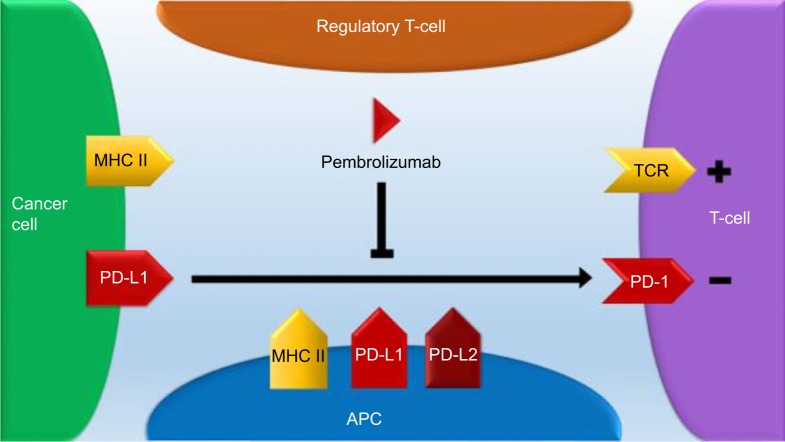Figure 1.
Pembrolizumab blocks a critical inhibitory signal from tumor cells allowing T-cell activation and antitumor immune response.
Notes: T-cells interact with APCs through the T-cell receptor binding to the APC MHC surface molecule-presenting antigen. Afterward, T-cell proliferation and activation occur against the presented antigen. However, ligation of PD-1 on T-cells to PD-L1 present on APCs, tumor cells, or Tregs can dampen this response. Pembrolizumab inhibits PD-1 binding to PD-L1 allowing T-cell activation and an antitumor immune response. In addition, pembrolizumab also prevents the interaction between PD-1 and PD-L2, which may or may not be beneficial for an immune tumor response.
Abbreviations: APCs, antigen-presenting cells; PD-1, programmed death 1; Tregs, regulatory T-cells; TCR, T-cell receptor; MHC, major histocompatibility complex; PD-L1, programmed death-ligand 1; PD-L2, programmed death-ligand 2.

